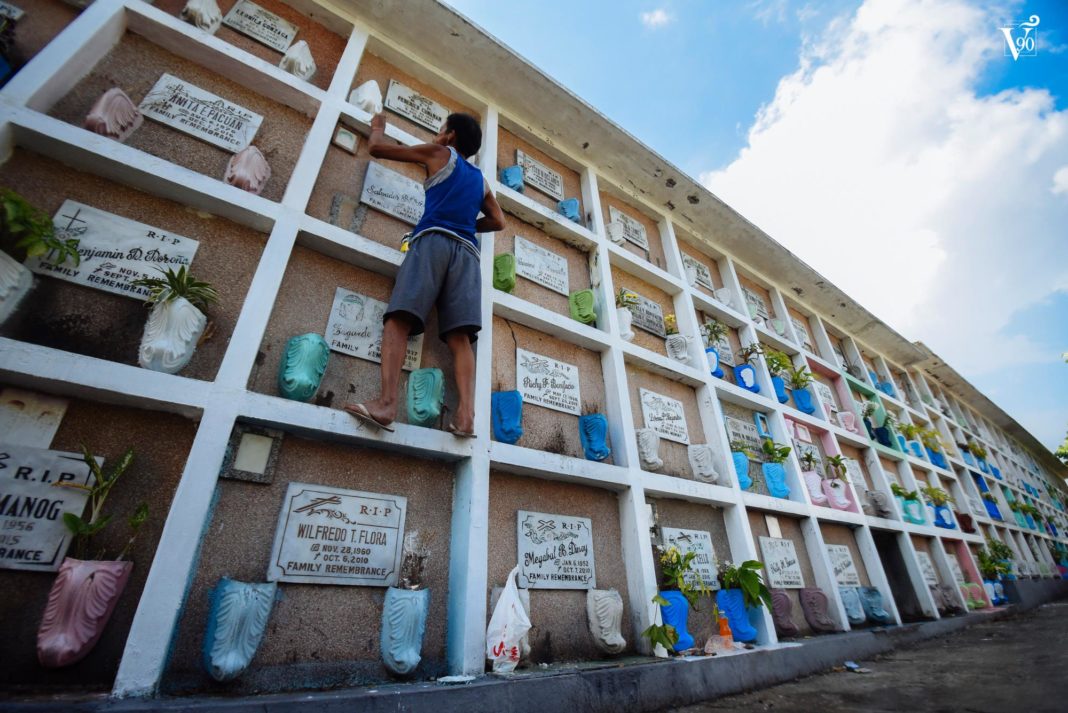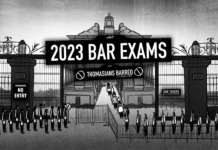It’s Year 2 of the Covid-19 pandemic, and just like last year, Filipinos’ traditional celebrations and rituals—and lives—are upended this year.
Since the pandemic broke out, several celebrations have been modified or changed with virtual counterparts: the usual town fiestas, Christmas noche buena, and new year salubong were replaced with at-home observances bereft of the usual noise, crowds, and splendor. Celebrations for the 500th year of Christianity in the country, which would have merited a nationwide jamboree if it wasn’t for the pandemic, have mostly been limited to Facebook live streams and socially distanced Masses.
Solemn celebrations, too, have been hampered by the viral disease. The country has had its churches locked down for two Holy Weeks already, and with how it appears, ditto for cemeteries, columbaria, and memorial parks on Undas. Here in the Philippines, Undas is a big thing. Filipinos commemorate their dead not only during the November 2 All Souls Day but also from late October to November 1, because here, Undas is a season, not a one-day event. During Undas, Filipinos often spend nights in cemeteries, light up candles, and offer flowers to pay tribute to their dead. Aside from Holy Week and Christmas, Undas is when a number of Filipinos go home and spend time with their families.
On October 25, Palace spokesman Harry Roque, who is also the mouthpiece of the Inter-Agency Task Force on Emerging Infectious Diseases, announced that public and private cemeteries, columbaria, and memorial parks will be closed from October 29 to November 2. Roque said outside of these dates, these facilities can accept visitors at 30 percent capacity, provided visitors wear face masks and face shields and observe proper physical distancing. This year’s cemeterial lockdowns are almost the same as last year’s, only two days shorter.
The government restriction is an understandable precaution, given that the days of the dead should not be Covid-19 superspreaders and should not cause more deaths. But couldn’t there be a little more compassion for those who have lost their loved ones due to Covid-19?
The first Covid-19 death outside of then-disease epicenter China was recorded in the Philippines in February last year. To date, more than 40,000 Filipinos have died due to Covid-19.
Bishop Pablo Virgilio David of Caloocan, incoming president of the Catholic Bishops’ Conference of the Philippines, recently lamented how the kin of Covid dead have yet to be given the chance to mourn for their losses. He appealed to local chief executives to “allow at least the families of those who died during this Covid pandemic between 2020-2021, to observe Undas this coming November 1 and 2.”
An act of compassion and a pat on the back for families of Filipinos killed by the disease, opening cemeteries should be doable if the government wanted so. David suggested that families of Covid-19 victims be given special passes to facilities where the remains of their loved ones lie in state upon their presentation of their loved ones’ death certificates.
The Philippines’ Covid-19 case log has seen an eightfold increase since November 1, 2020, when the country had 383,113 cases but no vaccines. The country now has over 2.7 million cases, but the situation in the country is slowly improving by the day, thanks to vaccines. Over 30 percent of the country’s target population for inoculation have been fully vaccinated, and daily Covid-19 cases have dropped to the 4,000-5,000 range from above 10,000 in September.
President Duterte has even expressed confidence that Filipinos might celebrate a “better” Christmas this year compared to 2020, thanks to recent vaccine arrivals. Better late than never for the Philippines, which in 2021 ranked last among 53 countries in a Bloomberg index in terms of pandemic resilience based on quality of healthcare, vaccination coverage, severity of lockdowns and restrictions, progress on restarting travel, and easing border curbs, and last among 121 countries in a Nikkei Asia report that evaluated countries’ infection management, vaccine rollouts, and social mobility.
With about 26 million fully vaccinated Filipinos and nearly 100 million Covid-19 vaccine doses, the country is still far behind its goal of vaccinating up to 90 percent of its 109-million population for herd immunity. But definitely more than ever, the country is positioned for better days ahead.
If the government can allow gatherings for political purposes, reopen schools at limited capacities, and allow malls to operate amid the pandemic, surely it can give Filipinos spaces and places to grieve. After all it is its incompetence that has allowed the virus to wreak havoc and cause thousands of deaths in the country in the first place.













